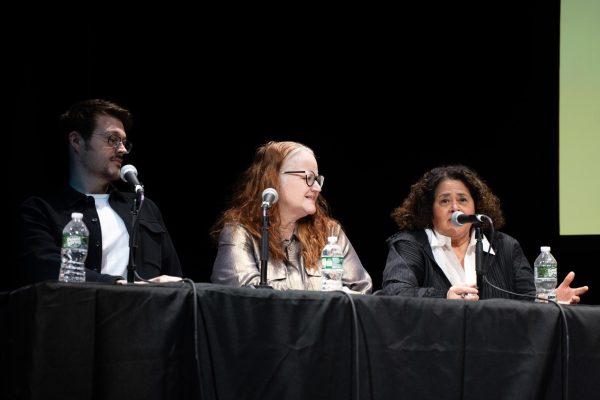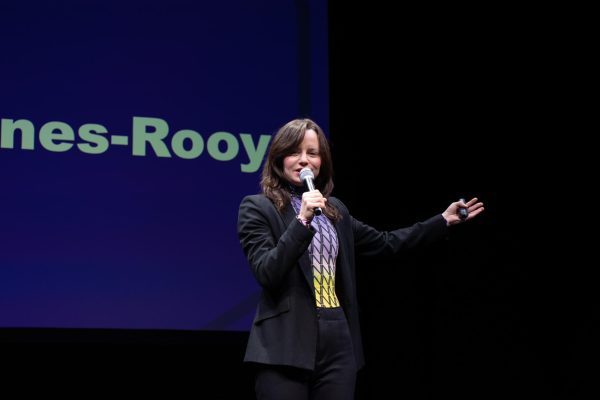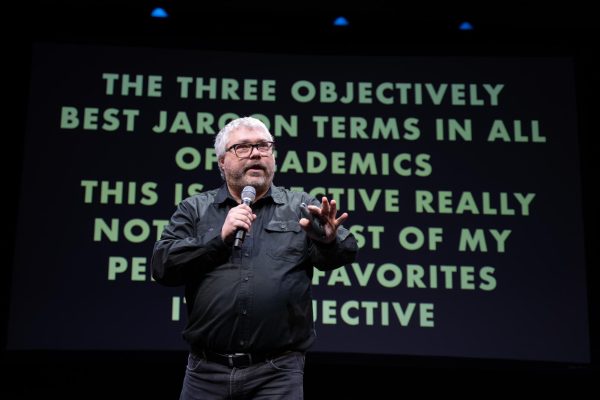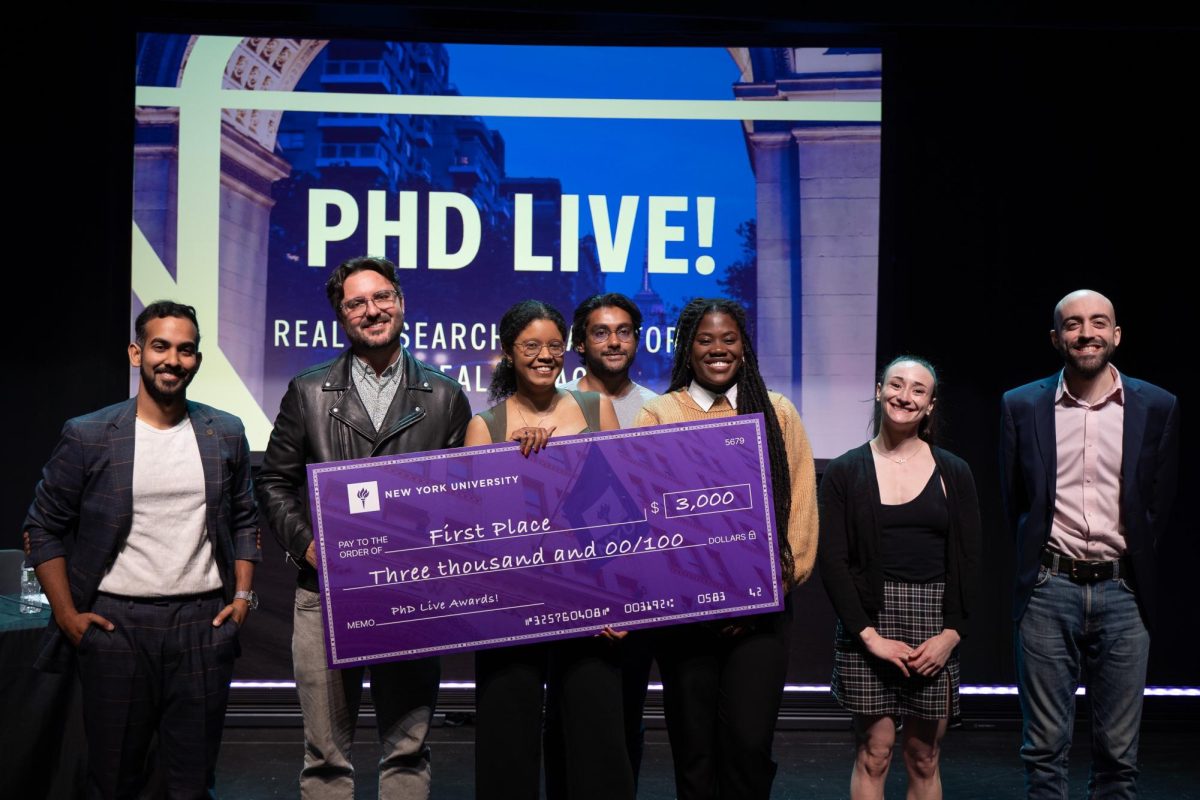Flashing lights, peppy jazz music and $3,000 on the line — not a typical setting for most academic conventions. But for NYU’s inaugural PhD Live!, held at The African Grove Theatre at the Paulson Center on Wednesday night, it diverged far from the jargon-filled, overly complicated and frankly boring, stereotype.
Taking after reality competition shows like “Shark Tank,” PhD Live! featured eight doctoral students, each of whom took to the stage to give three-minute research presentations to an audience of about 300 and a group of judges, including Catherine Burns, the former artistic director of storytelling organization The Moth; Anna Deavere Smith, a Tisch Drama professor; and Dave Wiskus, owner of Nebula, a streaming service.
Evaluated on their storytelling abilities, rather than the merit of their academic findings, speakers paired their speeches with visual aids to make their research, which often discussed complex scientific processes, more digestible. Teniola Idowu, a fifth-year Ph.D. student at NYU’s Vilcek Institute of Graduate Biomedical Sciences, used a metaphor of “fighting a war” accompanied with cartoon images of bacteria carrying weapons and helmets to help audience members understand the way our immune systems fight against the infection-causing bacteria Streptococcus pneumoniae.
Luana de Brito Anton, whose deep connection to her research topic made her a standout candidate, was the winner of this year’s PhD Live!. She wowed the judges with her presentation on the breakdown of pesticides in water sources.

“I grew up in the Amazon region of Brazil, right near the largest river in the world,” said de Brito Anton, a fifth-year Ph.D. student at the Tandon School of Engineering. “Even though we were surrounded by so much water, many people in my community did not get access to clean, safe drinking water, and this is a problem worldwide.”
Many speakers tied their research — which focused on niche topics like space medicine and labor rights among gig workers — to its large-scale implications. Jillian Poles, a third-year Vilcek Ph.D. student , connected her research on how heart disease manifests differently between the sexes to how the disparity in testing on female subjects may have dire consequences in health outcomes for women, exacerbated by an underrepresentation of women in STEM fields.
Others like Marco Battaglia, a sixth-year Ph.D. student at the Graduate School of Arts and Sciences shed light on the overlooked impact of Gothic themes on Italian film, literature and art. In his research, Battaglia aimed to show how artistic suppression is connected to wider political themes.
“Italians censored those stories and repressed their anxieties about the future,” Battaglia said. “They hoped to take refuge in an idealized past and make Italy great, just like it was during the Roman Empire. They were scared of falling behind.”
These students’ research outcomes can have far-reaching global impacts — a testament to the importance of academia being accessible and understandable for the general public.

Despite the seriousness of research topics, emcee Ben Lillie and co-host Andrea Jones-Rooy kept the mood light by poking fun at the grueling experience of being a Ph.D. student, drawing from their own experiences. Jones-Rooy, who formerly worked as a circus performer and standup comedian, said that being a Ph.D. student “[was] easily the most emotionally damaging” and difficult job she’s ever had.
Lillie agreed, but still emphasizes the importance of academia. As a public speaker with a Ph.D. in physics, he is especially passionate about making research more accessible.
“Researchers need to be able to tell the world why what they’re doing is important and how cool it is,” Lillie told WSN. “There’s this tension between wanting to get really in deep and study a thing, but then figuring out how to talk about it and making it exciting to people.”

The event was largely inspired by Lillie, who was invited to host a workshop in January for Ph.D. students after an employee at NYU’s Academic Program Review and Doctoral Affairs saw Lillie perform at a bar. Students who participated in the workshop were then invited to apply for PhD Live! through a video submission, in which they were tasked with presenting their research as if they were “talking to someone at a party.” Out of the 56 applications, eight were selected.
Diana Arpino, NYU’s vice provost for Academic Program Review and Doctoral Affairs, told WSN that the goal of the event was to equip these students with the “skills that are relevant in the world,” namely communication and public presentation. Making research more widely available is not only helpful for students and families, but also gives academics the chance to refine their language and understanding of their own work.
“My main ethos is if you can’t explain your work simply enough, then you don’t understand it,” Devjoy Dev, a fourth-year Ph.D. student at NYU Abu Dhabi, told WSN. His presentation on the effects of gut health on sleeping patterns for astronauts won him the People’s Choice Award at PhD Live!.
As cuts to federal funding for academic research leave many Ph.D. students vulnerable, spaces that encourage students to share their work and engage with their passions remain particularly valuable.
“I really can’t imagine a better response to anyone who would question the value of higher ed, or the critical importance of research in higher ed, than what we just witnessed this evening,” NYU Provost Georgina Dopico said.
Contact Grace Tan at [email protected].

























































































































































